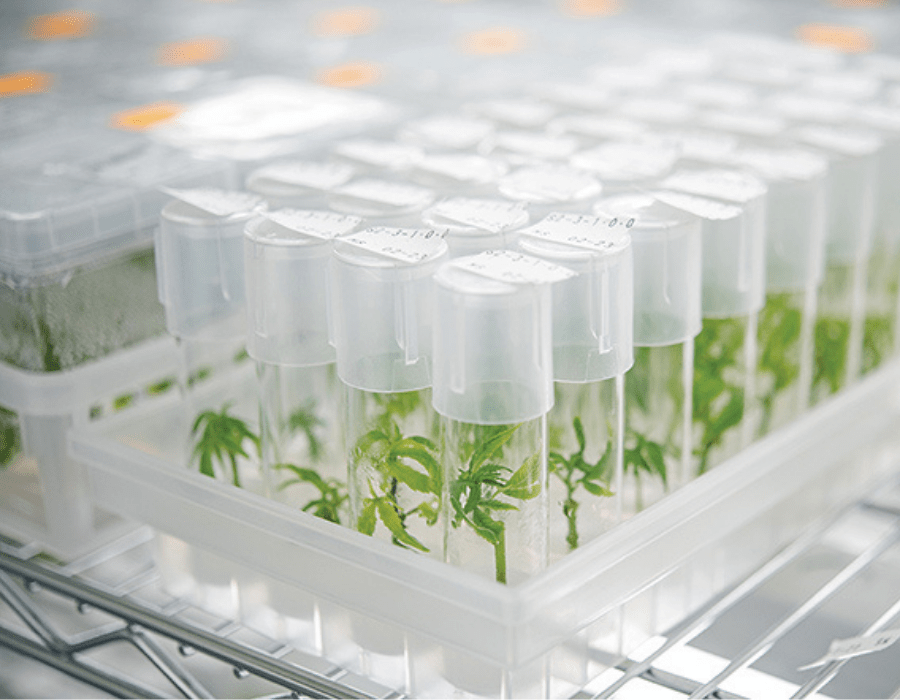Plant tissue culture, also known as micropropagation or in-vitro propagation, is a method of creating plant clones using living tissue such as a piece of a stem, leaf, or flower. The plant tissue is placed in an extremely sterile environment/medium, which allows it to multiply its cells and grow into a new plant.
Sterile conditions are of utmost importance in the micropropagation process, as the tissue cuttings (known as “explants”) are extremely fragile and may not survive an unclean culture medium.
Cannabis tissue culture shares many similarities with cloning techniques: cuttings taken from plants are induced to root, which creates a plant clone that is genetically identical to its mother plant. The most important factors that separate tissue culture from traditional cloning methods are the size and number of cuttings, the level of sterilisation involved in the process, and the sophistication of equipment needed to keep cuttings sterile and healthy, both of which raise the barrier to access significantly for cultivators.
Advantages of tissue culture over traditional cloning methods
Micropropagation has made the large-scale production of viable individuals of many plant species possible and plays a key role in the cannabis industry and modern agriculture, horticulture, and the food supply. It supports crop production by ensuring a stable supply of production-ready phenotypes, streamlining, and facilitating breeding of hybrid varieties, and eradicating pathogens from plant varieties. A growing number of legal cannabis cultivators in California use tissue culture to preserve their proprietary genetics.
Compared to traditional cloning, cannabis micropropagation can deliver a larger amount of identical plants. Over several weeks, dozens, hundreds, or even thousands of plantlets can be produced from a small amount of plant tissue. It would be difficult to achieve the same level of production using traditional cloning methods as mother plants need time to recover after cuttings have been taken.
Cannabis growers may find the speed of production of tissue cultured cannabis plants desirable for reducing the amount of time between generations for any breeding projects, meaning any new commercially viable strains can be brought to market quicker and with more regularity. Similarly, tissue culture propagation also produces clones that are free of viruses and diseases, which may transfer from mother to clones in traditional methods of cloning.
The stabilisation of cultivars is a considerable advantage of this technique as it will provide growers with security and peace of mind when it comes to planning their next growing project.
There has been substantial evidence on the successful effect of micropropagation “rejuvenating” genetics. When plants are propagated from tired mother plants or strains that have been replicated via traditional cloning for a long time, the resulting plants have grown with more vigour and resistance to pests and disease as well as with larger yields, more concentrated cannabinoids THC and CBD (as well as others) and stronger terpenes.
This is not a guaranteed result, however, and even tissue cultures completed in the most sanitary environments using the best tools have failed if the plant that is inducted into the process is too old, diseased, or otherwise unfit.
In addition to crop-planning advantages, growers will be pleased to find savings on the space required to successfully run a culturing operation. Overall, tissue culture cuttings and plantlets occupy a much smaller footprint than traditional clones. Tissue culture propagation of plants can also be carried out at any time of the year, meaning growers are not tied to a specific season or weather for taking clones of their plants.
